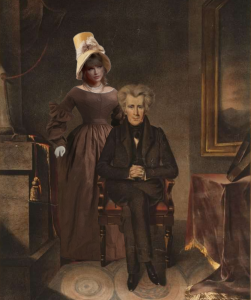First, a disclaimer about how I go about critiquing movies. I consider myself a movie fanatic, but when recommending movies to others, the only factor I base my opinion off is whether or not it made me feel something.
I don’t analyze the typical aspects usually used to judge a film, such as the quality of the acting, structure, plot, musical score and visuals. Rather, I focus on the aesthetics.
A realistic, interesting plot and seamless storyline is definitely a plus, but it is more important to be so mesmerized that I feel as if I am in the film. A movie is only as good as the emotion it incites.
With that being said, I loved “The Martian” because I felt completely, totally and utterly engrossed by the overall tone and message of the film.
Matt Damon goes from being a surprise cameo in “Interstellar” to the main character of “The Martian.” Damon plays Mark Watney, an astronaut who was left behind during a manned mission to Mars after a violent storm forces the rest of the crew to depart.
The crew is equipped with an out-of-this-world (pun intended) cast of Kate Mara, Sebastian Stan, Aksel Hennie, Michael Peña and Jessica Chastain. Naturally, Watney survives, and director of NASA Teddy Sanders (Jeff Daniels) struggles to find a way to bring him home.
I would not classify “The Martian” as sci-fi. I’m not a huge fan of “Star Trek,” “Star Wars” and other highly astronomically-focused movies, but I am a fan of this. I also don’t think the idea of space is responsible for movies of this nature to continually cash in at the box office. I think it’s society’s love of humanism that often accompanies these films, which is the essence of “The Martian.”
“The Martian” has the perfect amount of scientific jargon, just enough for the audience to be amazed by the intelligence required of astronauts and their counterparts, and chooses to focus on comedy instead. The funny distracts from a too-good-to-be-true rescue plan, which only encounters minor hiccups when looking at the grand scheme of things.
I was unsure how drastically NASA’s recent findings of water on Mars would affect the legitimacy of the movie. Despite a decent chunk of the movie being dedicated to Watney’s struggle to produce water, the movie’s theme would not have been any different if it included the new knowledge.
There was more of a focus on the mental struggle of being the only living, breathing human being on an entire planet, instead of the physical struggle of staying alive against all odds.
The pace of the movie was near perfect, holding my attention at all times even without an excess of suspenseful moments and a fairly predictable ending. I believe it was the three alternating settings of Watney’s survival on Mars, the rest of the crew’s journey home and the process of planning back on Earth, which complimented each other and eventually combined into an overwhelming ending.
“The Martian” begs the question of what is vaster – the headspace of someone stranded for years at a time or the desolate planet itself? The predicament reached an audience beyond the United States. It impacted China’s space program, and countries all over the world came together to root for the success of one man’s homecoming.
I’m no scientist, but this movie is a clear indication of the necessities for survival. The future of humankind relies not only on the hard work and collaboration of brilliant minds, but also the basic love and benevolence that is required to be human.




